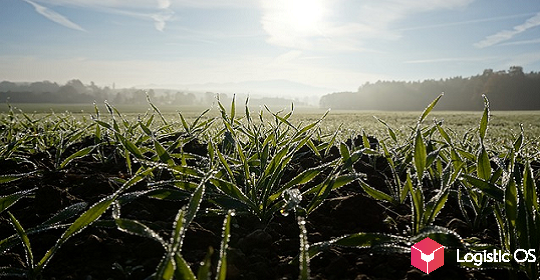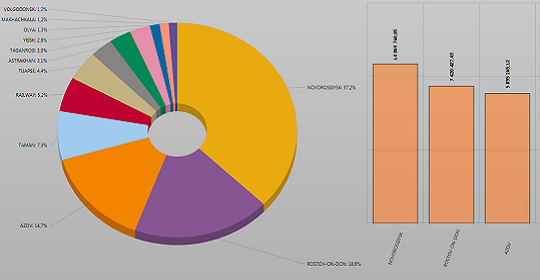The department is currently considering maintaining such restrictions for another six months to ensure the stability of the domestic market.
For now, the restrictions already adopted are in effect and will last until November 30.
But, as the head of the Ministry of Agriculture Dmitry Patrushev noted, the ministry is developing an option to extend restrictive measures for another 6 months.
In particular, we are talking about export quotas, setting maximum prices for agricultural producers and export duties.
According to current restrictions, the export quota for mineral fertilizers is 16.3 million tons from June 1 to November 30 of this year.
This should keep a large amount of fertilizers within the country so that local producers can get the required quantities at reasonable prices, which will be the key to a good harvest.
The situation with fertilizers in the country is improving
According to agricultural producers themselves, the effect of the measures taken by the government is there, and it is already noticeable.
For example, in a number of regions, the supply of ammonium nitrate, which was recently very difficult to obtain, has been restored: there was physically a shortage of it.
In addition, there is a decline in prices for this saltpeter: not so long ago it cost about 25 thousand rubles per ton, now it is no more than 20 thousand.
The most important thing, as experts note, is the restoration of competition between different manufacturers, which leads to the fact that prices may continue to decline further.
Problems still remain
First of all, this concerns the shortage of funds among agricultural producers. Including the purchase of fertilizers.
The harvest has been harvested, but a significant part of it is still stored in warehouses, because selling it at current prices is unprofitable. In addition, unsold harvest leads to a lack of storage space for fertilizers.
At the same time, the Ministry of Agriculture plans to increase the rate of application of ammonia fertilizers from 65 kg per hectare to 80 kg next year.
This raises questions as to whether agricultural producers will be able to find the money to purchase fertilizers to meet such standards.
At the same time, fertilizer producers are not entirely happy with the current situation: exports would allow them to earn much higher incomes than selling products within the country.
Therefore, they are asking the government to at least reduce export duties: on ammonia and methanol to 0%, on potash fertilizers — from 10% to 3%. But whether the authorities will cooperate is still unknown.
Against this background, fertilizer production in the country is also growing. In the first 9 months of this year, it increased by 6% for mineral fertilizers, by 12.6% for potash fertilizers, and by 0.4% for phosphorus fertilizers.

